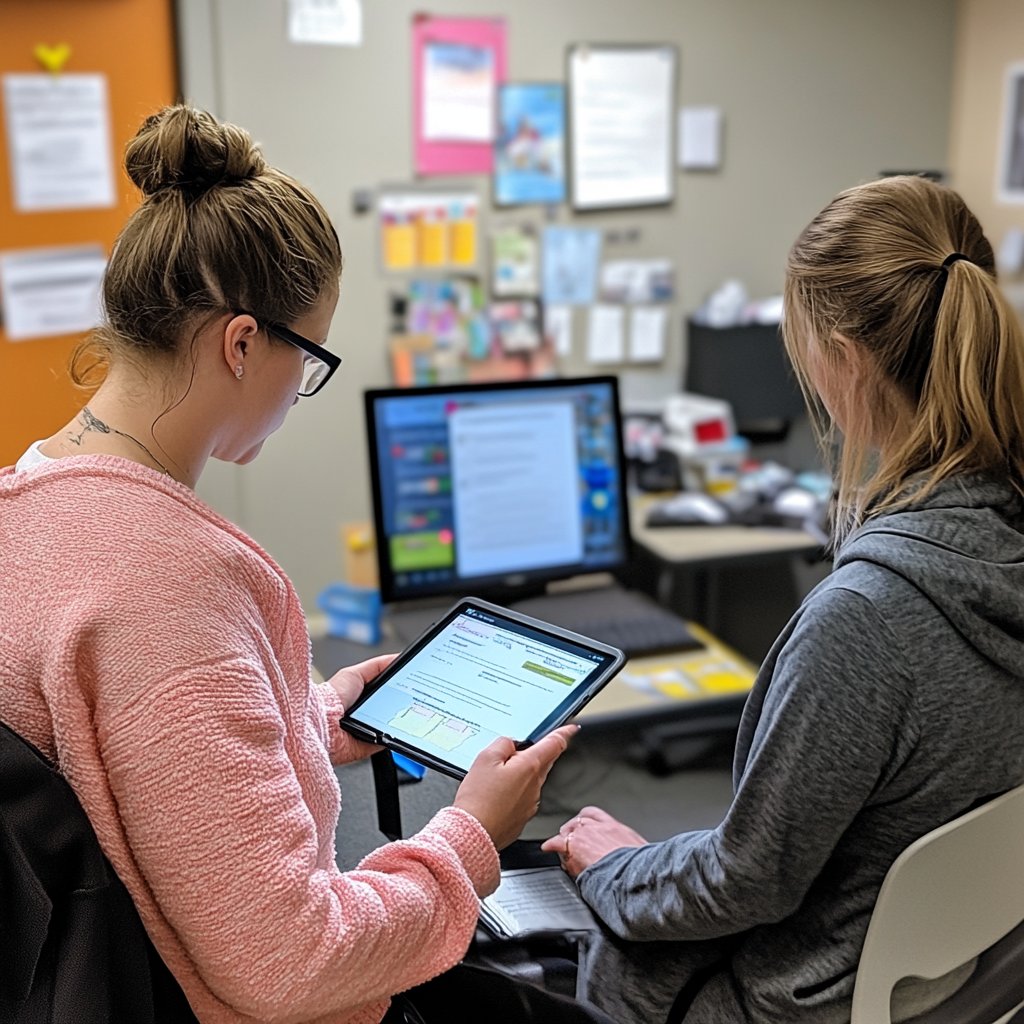Mastering BCBA Documentation: Efficiency Hacks for Busy Professionals
Mar 21, 2025
Mastering BCBA Documentation: Efficiency Hacks for Busy Professionals
Documentation is essential to Behavior Analysis, but it can be time-consuming. Whether you're writing a treatment plan, tracking progress, or updating reports, efficient documentation strategies can free up valuable time. This guide covers time management hacks that can help BCBAs streamline their documentation process while maintaining accuracy and compliance.
Streamline Your Documentation: Time-Saving Hacks for BCBAs
Effective documentation management is key to ensuring that BCBAs can focus more on direct client care and less on administrative burdens. Streamline Your Documentation: Time-Saving Hacks for BCBAs provides practical strategies to help behavior analysts maintain compliance, reduce stress, and optimize workflow.
Hack #1: Utilize Digital Tools and Software
Technology has revolutionized documentation for behavior analysts. By leveraging digital tools, BCBAs can minimize paperwork and enhance efficiency.
Top Digital Tools for BCBAs

-
ABA Toolkit – A comprehensive tool for data collection, treatment planning, and progress monitoring.
-
Google Workspace (Docs, Sheets, Calendar) – Ideal for organizing reports, scheduling, and collaboration.
-
Evernote or OneNote – A digital notebook for saving notes and to-do lists.
-
Voice-to-text software – Helps in dictating notes instead of typing, saving time.
-
Practice Management Systems – Platforms like CentralReach streamline scheduling and documentation.
Hack #2: Standardize Templates and Forms
Using standardized templates helps create consistency and reduces the time spent formatting documents.
Creating Effective Templates
-
Use pre-designed forms for treatment plans, session notes, and assessments.
-
Utilize drop-down menus and checkboxes to minimize manual input.
-
Use color coding to highlight critical sections for easy reference.
-
Ensure compliance with User Agreement policies and ethical guidelines.
Hack #3: Implement a Consistent Schedule
A structured documentation schedule prevents backlog and last-minute stress.
Best Practices for Scheduling Documentation Time
-
Set aside dedicated time slots daily or weekly for documentation.
-
Prioritize documentation at the end of the day while the information is fresh.
-
Use a timer to stay focused and avoid unnecessary distractions.
-
Incorporate documentation into sessions when possible to avoid after-hours work.
Hack #4: Voice-to-Text Technology
Voice-to-text software allows BCBAs to dictate notes instead of manually typing them, significantly improving efficiency.
Benefits of Using Voice-to-Text for Documentation
-
Saves time by allowing spoken input instead of typing.
-
Reduces hand fatigue from extensive typing.
-
Enhances accuracy by transcribing real-time session details.
-
Supports multitasking, allowing documentation while reviewing data.
-
Original audio recordings can be backups for session notes, ensuring details are captured accurately.
Hack #5: Prioritize and Delegate Tasks
Delegation is key in the professional world of behavior analysis. Assigning administrative tasks can free up time for clinical work.
How to Delegate Effectively

-
Train RBTs or admin staff to handle data entry for session notes.
-
Use automation for recurring reports and scheduling.
-
Outsource non-essential tasks, such as social media updates, to assistants.
-
Leverage supervision sessions for real-time documentation review.
Hack #6: Batch Similar Tasks Together
Grouping similar tasks reduces cognitive load and increases efficiency.
The Power of Task Batching
-
Write multiple session notes at once to maintain consistency.
-
Plan treatment goals in bulk for clients with similar needs.
-
Review progress reports together to identify trends.
-
Schedule meetings consecutively to avoid context switching.
Hack #7: Keep Documentation Clear and Concise
Concise documentation improves readability and reduces unnecessary work.
Tips for Writing Efficiently
-
Stick to objective language and avoid unnecessary details.
-
Use bullet points for key information instead of lengthy paragraphs.
-
Follow a structured format for clarity and consistency.
-
Avoid jargon that may require additional explanation.
Hack #8: Regularly Review and Update Your Processes
As technology evolves, documentation methods should also improve.
Continuous Improvement Strategies
-
Assess efficiency regularly and identify bottlenecks.
-
Seek feedback from colleagues and adjust templates accordingly.
-
Stay updated on ABA compliance requirements and software advancements.
-
Engage with the BCBA community to learn about effective ways to streamline documentation.
Preparing for the BCBA Exam While Managing Documentation
Strategies for Balancing Exam Preparation and Work Responsibilities

-
Set a study schedule that aligns with your documentation time to create a balanced workload.
-
Use digital flashcards and note-taking apps to study efficiently without burdening your documentation.
-
Practice time management hacks by integrating BCBA exam study sessions into your daily workflow.
-
Engage in peer discussions to reinforce learning while managing work-related documentation tasks.
Resources to Support BCBA Exam Preparation
-
ABA Toolkit for exam review and case study practice.
-
Original audio lectures from BCBA-approved training programs to optimize study time.
-
Mock exams and time-tracking apps to improve efficiency in both studying and documentation.
Conclusion
Summary of Time-Saving Hacks
-
Use digital tools like ABA Toolkit and practice management systems.
-
Create and use standardized templates for efficiency.
-
Follow a consistent documentation schedule to avoid a backlog.
-
Utilize voice-to-text technology to speed up note-taking.
-
Prioritize and delegate non-clinical tasks where possible.
-
Batch similar tasks together to improve workflow.
-
Write clear and concise documentation.
-
Regularly review and improve documentation processes.
-
Integrate BCBA exam preparation with documentation efficiency strategies.
Final Thoughts on Streamlining Documentation
Implementing these time management hacks can reduce administrative burdens while maintaining high standards of practice. Efficient documentation ensures compliance, enhances workflow and allows BCBAs to focus on what matters most: providing quality services.
Additional Resources
Recommended Reading
-
"The Behavior Analyst's Guide to Efficient Documentation" – An in-depth resource for treatment planning.
-
"Maximizing Productivity in ABA Practice" – Insights into workflow management.
-
"Ethical" Documentation in ABA" – A guide to compliance and ethical considerations.
-
"BCBA Ex "m Study Strategies" – A resource for integrating exam preparation with daily documentation tasks.
Useful Tools and Software
-
CentralReach – ABA practice management platform.
-
Google Keep – Digital sticky notes for quick reminders.
-
Dragon Speech Recognition – Voice-to-text transcription software.
-
ABAToolkit – Comprehensive resource for behavior analysts.
-
Original audio recordings – A valuable tool for documentation and BCBA exam preparation.
Frequently Asked Questions (FAQs)
1. What's the software for BCBA documentation?
Multiple options exist, but CentralReach, ABAToolkit, and Google Workspace are highly recommended.
2. How can I reduce the time spent on session notes?
Use voice-to-text software, structured templates, and batch multiple session notes together.
3. Should I delegate documentation tasks?
Delegating data entry tasks to RBTs or admin staff can significantly improve efficiency.
4. How can I ensure my documentation meets ethical guidelines?
Follow User Agreement policies, stay updated on BACB guidelines, and review documentation practices regularly.
Join the Community of Efficient BCBAs
Join forums, professional groups, and social media communities where BCBAs share effective ways to improve documentation and workflow. Engaging with the BCBA network provides valuable insights into optimizing daily tasks and achieving the best outcomes in ABA practice.
Solve your clinical challenges with research using this simple, 3 step process that saves you time and gets you clinical answers FAST.
Learn the Key Places Framework, the Research Finding Framework, and how they work together in this free minicourse.
Signing up will also subscribe you to the email list. Unsubscribe at anytime! We will never sell your information, for any reason.

